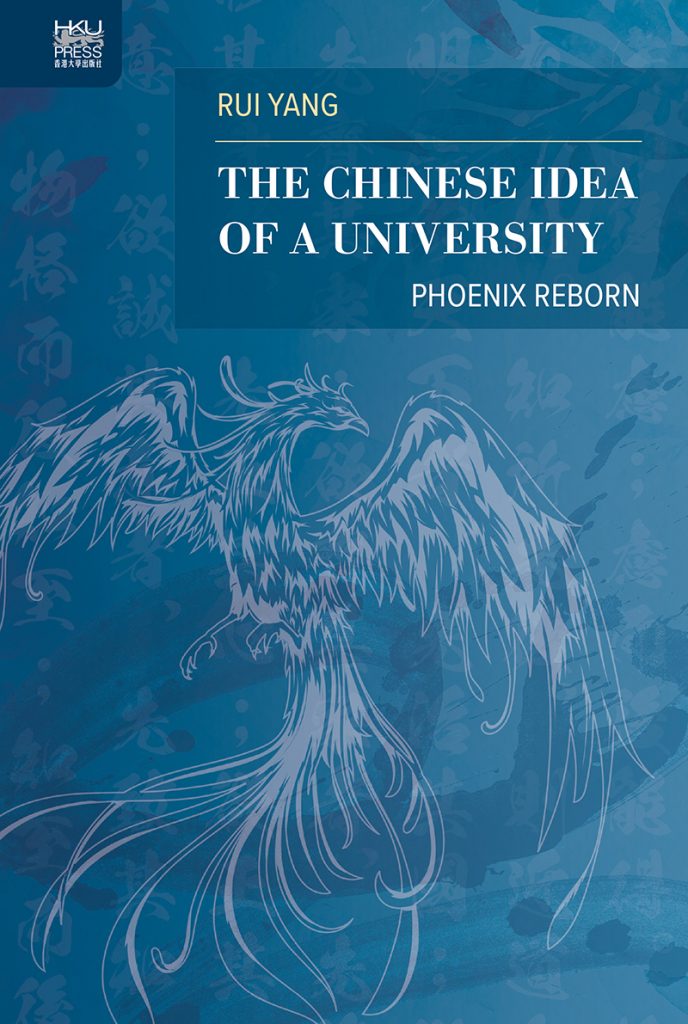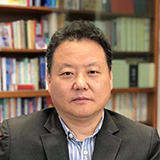November 2022 | Volume 24 No. 1
The Mix Master
Hong Kong, China and much of the non-Western world have one thing in common: they have embraced the Western idea of a university, where English is the lingua franca and modern academics pursue the goals of speaking truth to power and serving the economy.
To the new Dean of Education Professor Rui Yang, these are all important goals, but they do not allow for local variations nor recognise that the people operating in these systems, in places like Hong Kong and China, come from different cultures to the American and European traditions embedded in universities.
“I joke to colleagues that their rational selves are Western, but their emotional selves are Chinese,” he said.
His aim as Dean – also outlined in his new book, The Chinese Idea of a University: Phoenix Reborn – is to encourage recognition of the traditions and values of both approaches and to promote research into the Hong Kong education system’s relative success in producing students who can navigate both paths.
“Hong Kong is unique. You come across young kids who can engage equally well in ancient Chinese history and poetry and ancient British history and poetry. You won’t find students who can do this so easily in China or Japan. So Hong Kong is in a unique position. Yet very little theoretical work has been done on why this is so,” he said.
“I want our faculty to theorise and understand the factors behind the excellence of the Hong Kong model that we can hopefully apply more broadly to education.”
Cultivating character
Professor Yang brings to these aims a deep background in comparative education across different cultures. He became a lecturer aged 24 in China, came briefly to HKU in the mid-1990s to launch his PhD studies, then went to Australia which allowed him to bring his wife and daughter and where he worked in universities until 2008. That year, he returned to HKU, attracted by the East-West interface and the quality of resources here.
His research has explored the dimensions of East-West integration, culminating in his new book which was coincidentally published this year. It delves into the topic by exploring the Western origins of the modern university and how Chinese academic traditions have differed.
“The Chinese tradition does not place the state in opposition to academia. There is no tension there, it is like family. The emphasis is on how much you understand and contribute. We have a famous saying in Chinese that we worry about everybody first before ourselves and let everybody enjoy themselves before ourselves. The emphasis is different from Western academia. This Confucian cultivation of character is one of the fundamental features of the Chinese system,” he said.
In practice, both systems can be problematic, he said. But scholars who work within a Western system but live in a Chinese society with traditional values must also deal with contradiction.
This brings him back to the point that Hong Kong’s education system seems to have done well navigating the two. He has started meeting with local principals to generate discussion about the qualities that mark out the best schools and to start learning from them. He believes a solid grounding in traditional Chinese wisdom and classical language could be a good resource for integrating the best of both worlds.
Hong Kong well-placed
Professor Yang also believes HKU’s Faculty of Education is one of the best places to get this discussion rolling, and not just because of its geographical and cultural position at the crossroads of East and West. The quality of work by its academic staff is very strong.
“This Faculty has been consistently ranked among the top 10 in the world for years. I’m even more proud that we are always the best-ranked Faculty of Education among non-Western societies. We have achieved a lot learning from the West. Now, we can do more to serve the local community,” he said.
This means furthering contributions to local policymaking, school management, academic performance and classroom application, as well as to global theory about education. “Hong Kong is well-placed to make breakthroughs in terms of educational experiments. And we can contribute to local engagement, Chinese societies and globally.
“We do face serious challenges, such as a shrinking population locally and growing nationalism and anti-globalisation internationally. But we can find opportunities in this. I strongly believe in intellectual pluralism and mutual respect. If you want to be sustainable, you have to understand and live with others. I think HKU’s Faculty of Education can contribute to this,” he said.

The Chinese Idea of a University: Phoenix Reborn was published in September 2022 by Hong Kong University Press.
I strongly believe in intellectual pluralism and mutual respect. If you want to be sustainable, you have to understand and live with others.

PROFESSOR RUI YANG

